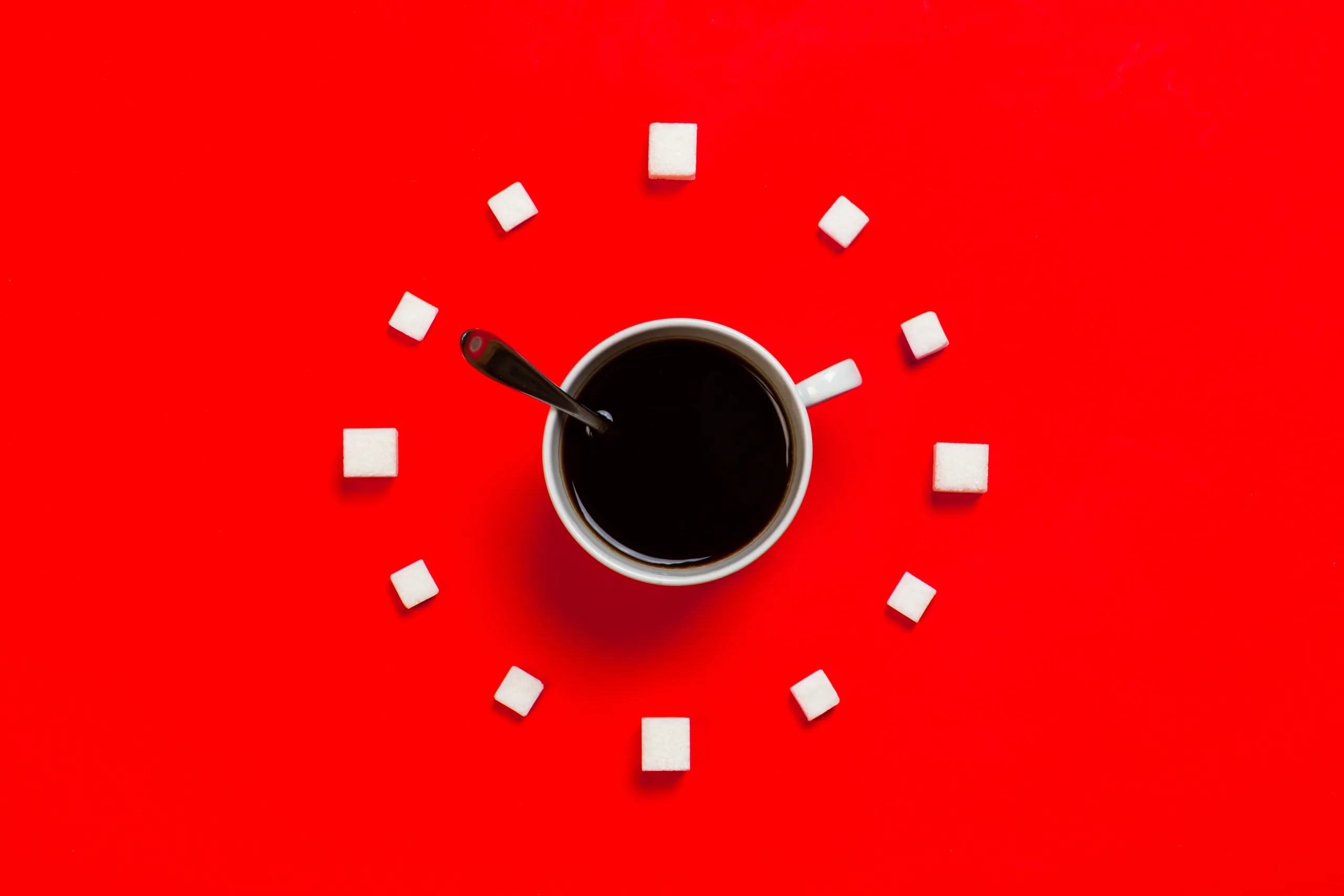Are you searching for an energy drink that won’t upset your stomach? Low FODMAP energy drinks are the perfect solution! This article will discuss the benefits of low FODMAP energy drinks, what they are, and why they may be better for your health than traditional energy drinks. It will also provide information on which brands offer low FODMAP options and how to choose the right one for you. With this information, you can make an informed decision when it comes to selecting a low FODMAP energy drink.
Low Fodmap Energy Drinks are beverages that contain little or no fermentable carbohydrates, which can help reduce the symptoms of irritable bowel syndrome (IBS) and other digestive issues. These drinks provide an energy boost without triggering gastrointestinal discomfort, making them an ideal choice for people who suffer from digestive issues.
FODMAP
FODMAP stands for Fermentable Oligosaccharides, Disaccharides, Monosaccharides, and Polyols. It is a collection of short-chain carbohydrates that are poorly absorbed in the digestive tract. These carbohydrates are found naturally in many foods and can be difficult to digest for some people. Those with irritable bowel syndrome (IBS) may find relief from their symptoms by limiting their intake of FODMAPs. FODMAPs are found in a wide variety of foods, including certain fruits and vegetables, dairy products, grains, sweeteners, and processed foods. By reducing or eliminating FODMAPs from the diet, individuals with IBS may be able to reduce their symptoms.
A low-FODMAP diet involves limiting or avoiding foods that contain these carbohydrates. This diet can help reduce symptoms such as gas, bloating, abdominal pain and diarrhea in individuals with IBS. A registered dietitian can help create a personalized plan that meets individual needs while still providing adequate nutrition.
Why Do People Avoid High FODMAP Foods?
People may avoid high FODMAP foods because they can trigger digestive difficulties. FODMAPs are short chain carbohydrates and sugar alcohols found in many foods. These molecules are poorly absorbed in the small intestine, leading to an increase in water and gas production, which can cause abdominal cramps, bloating, and diarrhea. People with irritable bowel syndrome (IBS) may be especially sensitive to these molecules, making it necessary to limit or avoid high FODMAP foods.
In addition to IBS, people with other digestive disorders such as celiac disease or inflammatory bowel disease (IBD) may need to restrict their intake of high FODMAP foods as well. Even those without these disorders may find that avoiding certain high FODMAP foods helps alleviate symptoms of bloating, gas, and abdominal discomfort.
Because the molecules are found in so many common foods, it can be difficult for people to identify which ones contain high levels of FODMAPs. It is recommended that individuals work with a dietitian or nutritionist who is trained in the low-FODMAP diet to help them determine which foods should be avoided and which ones can be included in the diet.
Click here to preview your posts with PRO themes ››
By following a low-FODMAP diet and avoiding certain high-FODMAP foods, many people have been able to significantly reduce their symptoms and improve their overall quality of life.
Ingredients Used in Low FODMAP Energy Drinks
Low FODMAP energy drinks are becoming increasingly popular as people become more aware of their dietary needs. These drinks are designed to provide an energy boost without triggering any symptoms associated with FODMAP intolerance. The key ingredients used in low FODMAP energy drinks include glucose, sucralose, fructose, maltodextrin and stevia.
Glucose is a simple sugar found naturally in fruits, vegetables and grains. It is used in low FODMAP energy drinks as a source of quick energy and to help the body absorb other nutrients. Sucralose is an artificial sweetener that has been approved by the FDA for use in food and beverages. It has no effect on blood sugar levels and provides a sweet taste without adding calories or carbohydrates to the beverage.
Fructose is a naturally occurring sugar found in fruits and honey. It is used in low FODMAP energy drinks as an alternative sweetener to sucralose and also adds some additional vitamins and minerals to the drink. Maltodextrin is a complex carbohydrate derived from cornstarch that provides sustained energy throughout the day without causing any digestive issues or adverse reactions.
Finally, stevia is an all-natural sweetener derived from the stevia plant that has been shown to have no effect on blood sugar levels or cause any digestive distress. It adds sweetness to the beverage without adding calories or carbohydrates and can be used as an alternative to other artificial sweeteners like sucralose. Together, these ingredients provide essential nutrients and lasting energy without triggering any unpleasant symptoms associated with FODMAP intolerance.
Benefits of Low FODMAP Energy Drinks
Low FODMAP energy drinks are becoming increasingly popular as a healthier alternative to traditional energy drinks. These drinks are specially formulated to reduce the presence of fermentable oligo-di-monosaccharides and polyols (FODMAPs) in the drink. By reducing the amount of FODMAPs, these drinks can help to reduce digestive discomfort for those who are sensitive to these compounds. Additionally, these drinks often contain fewer calories and sugar than traditional energy drinks, making them a better choice for those looking to maintain a healthy lifestyle.
Low FODMAP energy drinks also tend to contain added vitamins and minerals that can help with overall health and well-being. Many of these added nutrients can provide an extra boost of energy, helping you stay energized throughout the day without the crash associated with traditional energy drinks. These added nutrients can also help support healthy digestion, giving you more energy and helping your body absorb essential vitamins and minerals more easily.
Click here to preview your posts with PRO themes ››
Finally, low FODMAP energy drinks often taste great! Since they don’t contain as much sugar as traditional energy drinks, they tend to have a cleaner taste that is free from artificial sweeteners or other unhealthy additives. This makes them a much better choice for those looking for an enjoyable way to get their daily dose of energy without sacrificing taste.

Potential Risks of Low FODMAP Energy Drinks
Low FODMAP energy drinks are marketed as healthier alternatives to traditional energy drinks, but there are potential risks associated with them. These drinks contain fewer carbohydrates, sugars and other fermentable carbohydrates than traditional energy drinks, and this can lead to a disruption in the body’s natural balance. Low FODMAP energy drinks also contain a variety of additives, caffeine and other stimulants which can cause dehydration, headaches, irritability and other adverse reactions. Additionally, the high levels of caffeine present in these drinks can increase heart rate and blood pressure and may interfere with sleep patterns.
People who are sensitive to certain ingredients found in low FODMAP energy drinks may experience an allergic reaction or gastrointestinal distress such as abdominal pain, bloating or diarrhea. Additionally, those with underlying health conditions such as diabetes or kidney disease should be cautious when consuming low FODMAP energy drinks as they may interfere with medications or aggravate existing medical conditions. Finally, there is some evidence that suggests that the long-term use of these beverages may lead to increased risk of developing chronic diseases such as heart disease or stroke.
It is important to note that while low FODMAP energy drinks are often marketed as a healthier alternative to traditional energy drinks, they still contain a variety of potentially dangerous ingredients that can have serious health implications. Therefore it is important to speak with your doctor before consuming any type of energy drink in order to ensure your safety.
Choosing the Best Low FODMAP Energy Drink
When looking for an energy drink, it’s important to consider the ingredients and their impact on your health. Many store-bought energy drinks contain high levels of FODMAPs, which can aggravate digestive issues. Fortunately, there are plenty of low FODMAP energy drinks available that can give you a boost of energy without triggering any unpleasant digestive symptoms.
Before you choose a low FODMAP energy drink, it’s important to know what FODMAPs are. FODMAPs are short-chain carbohydrates found in many foods. They can be difficult for some people to digest, leading to uncomfortable digestive symptoms like bloating, gas and abdominal pain. By choosing a low FODMAP energy drink, you can avoid these unpleasant symptoms while still getting an energizing boost.
When choosing a low FODMAP energy drink, it’s important to read the ingredients list carefully. Look for products that contain natural sweeteners like stevia or monk fruit extract instead of artificial sweeteners like aspartame or sucralose. Avoid products that contain high fructose corn syrup or other added sugars as these can cause digestive issues for some people.
Click here to preview your posts with PRO themes ››
It’s also important to consider the caffeine content in your chosen energy drink. Caffeine is a stimulant and can lead to jitteriness and other unpleasant side effects if consumed in large amounts. Look for drinks with lower caffeine levels so you don’t experience any negative side effects from your energy drink.
Finally, make sure that your chosen low FODMAP energy drink has plenty of electrolytes and vitamins added in. These ingredients help to hydrate the body and provide essential nutrients that can help promote long-term health and wellbeing.
By following these tips, you’ll be sure to find the best low FODMAP energy drink for your needs!
Tips for Preparing Low FODMAP Energy Drinks
One of the biggest challenges faced by people with digestive issues is finding snacks and drinks that are low in FODMAPs. However, there are a few tips you can follow to create your own low FODMAP energy drinks.
First, choose a base that is low in FODMAPs. This could include water, almond milk, or lactose-free cow’s milk. You could also opt for coconut water if you’re looking for a more refreshing option.
Next, consider adding some natural sweetness to your drink. A few options include molasses or pure maple syrup or honey. You can also add a teaspoon of stevia if you want to keep it sugar-free.
Finally, you can choose to add some flavorings to make your drink more interesting and flavorful. Some good choices include lemon juice, lime juice, mint leaves, ginger root, turmeric powder, and cinnamon powder. Make sure to use all of these ingredients sparingly as they may contain some FODMAPs too.
These tips should help you create delicious and nutritious energy drinks with minimal amounts of FODMAPs. With a little creativity and experimentation, you can find the perfect combination of flavors that will satisfy your taste buds without irritating your digestive system!

Conclusion
Low FODMAP Energy Drinks offer a healthy alternative to their sugary counterparts, providing a great source of natural energy. The low levels of FODMAPs in these beverages can help individuals with IBS and other digestive issues avoid discomfort and stay energized throughout the day. They are often lower in calories and contain beneficial ingredients like green tea extract, B Vitamins and electrolytes.
These drinks can be used as part of an overall healthy lifestyle and can provide a great boost of energy when needed. They are available in a variety of flavors, making it easy to find one that fits your taste preferences. When choosing an energy drink, be sure to read the label carefully to ensure that it is low in FODMAPs and contains natural ingredients without added sugars or artificial sweeteners.
Overall, Low FODMAP Energy Drinks provide an excellent way to get energized without having to worry about unpleasant digestive symptoms or consuming too many calories. With their natural ingredients and low levels of FODMAPs, they are an excellent choice for those who want to stay energized while still taking care of their health.

